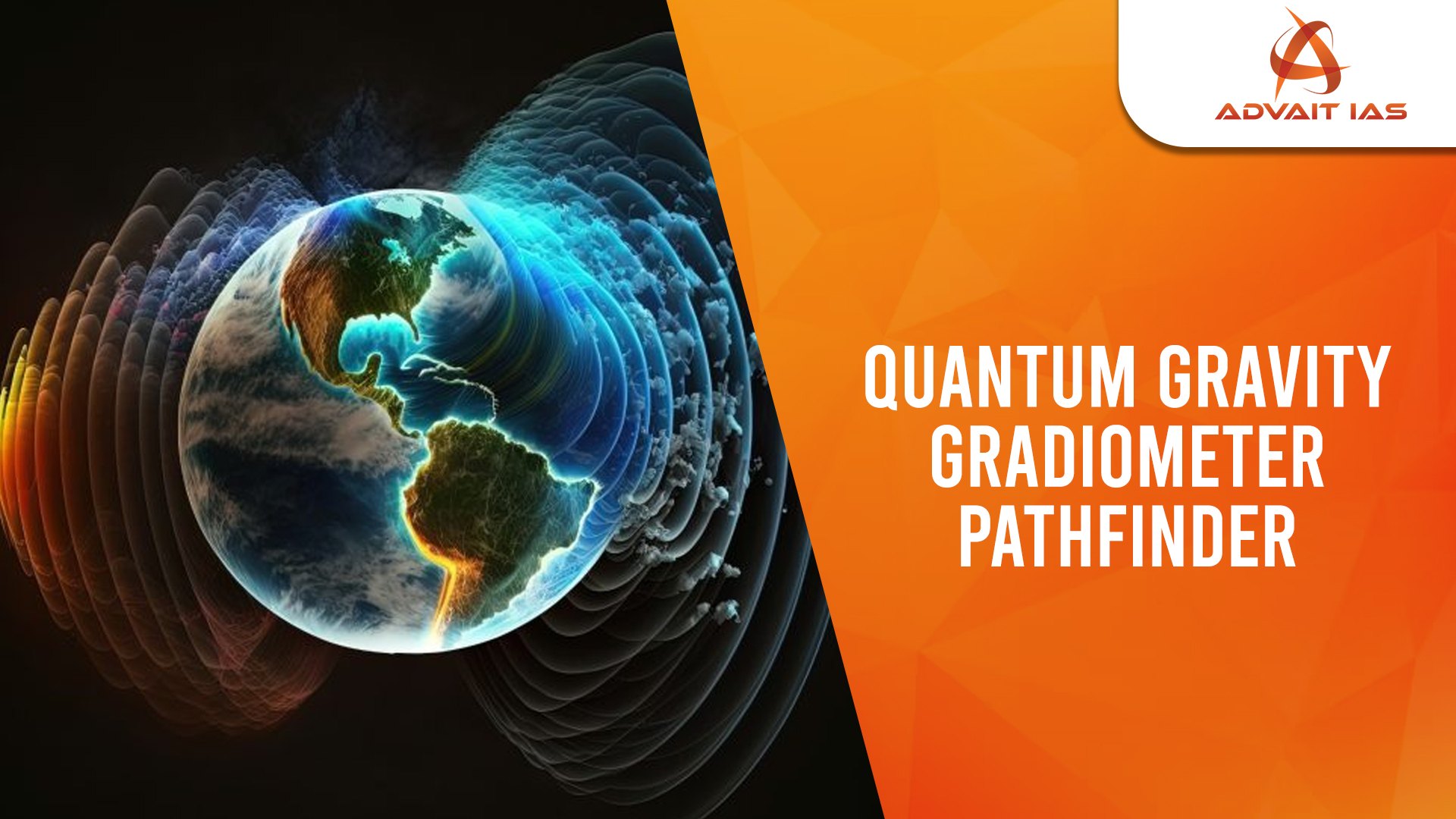What is QGGPf?
- A first-of-its-kind space-based quantum sensor developed by NASA.
- Designed to map Earth’s gravity field with 10x higher precision than classical gravity sensors.
- Weighs only 125 kg, making it highly compact and cost-efficient for space deployment.
- Scheduled for space testing by the end of the decade.
- Developed in collaboration with private companies and academic institutions.
Why Mapping Gravity Matters?
- Earth’s gravitational field varies with subsurface mass distribution:
- Mountains = stronger gravity
- Valleys/aquifers = weaker gravity
- Gravitational variations help in studying:
- Subterranean aquifers
- Oil and mineral deposits
- Tectonic activity and earthquake prediction
- Ice sheet dynamics and climate change
How QGGPf Works
- Uses ultra-cold atoms near absolute zero as sensitive quantum sensors.
- Measures minute gravitational shifts by observing changes in atomic behavior.
- Applies principles of quantum mechanics and atom interferometry.
Key Advantages of QGGPf
| Feature | Advantage |
| Quantum Sensitivity | 10× more accurate than classical gravity sensors |
| Compact Design | Lightweight (125 kg), reducing launch costs |
| Space-based Deployment | Enables global coverage and continuous monitoring |
| Multi-utility | Applications across climate science, navigation, resource exploration, and security |
Broader Applications and Future Prospects
- Climate Science: Tracks groundwater movement, ice loss, and related climate trends.
- Planetary Missions: Assists in exploring internal structures of planets and moons.
- Fundamental Physics: Offers high precision tools for testing Einstein’s General Relativity.
- National Security & Navigation: Improves defense mapping, GPS accuracy, and geospatial intelligence.
QGGPf represents a quantum leap in geospatial technology, with significant implications for earth sciences, planetary exploration, and global navigation systems. As gravity becomes a new frontier of information, quantum sensing through instruments like QGGPf could redefine scientific exploration and earth resource management in the 21st century.






